The Celebrations of Life Aren’t Over Yet

Painting the House by Bibhu Padhi. Hyderabad: Orient Longman. 1999. 79 pp.
In Indian English poetry Bibhu Padhi belongs to the second generation of post-Independence poets.… continue reading...

Painting the House by Bibhu Padhi. Hyderabad: Orient Longman. 1999. 79 pp.
In Indian English poetry Bibhu Padhi belongs to the second generation of post-Independence poets.… continue reading...
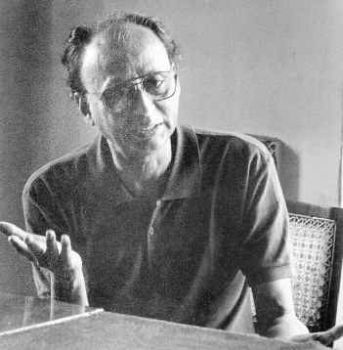
Bare Face by Jayanta Mahapatra. Kottayam: DC Books (India), 2000. $7.95.
As Reviewed By: Rabindra K. Swain
Today, when India is known abroad more for her fiction than her poetry, Jayanta Mahapatra’s sixteenth volume, Bare Face, arrives.… continue reading...
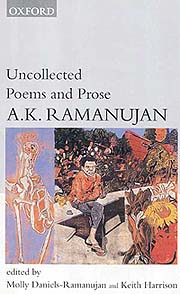
Uncollected Poems and Prose by A. K. Ramanujan. Edited by Molly Daniels-Ramanujan and Keith Harrison. New Delhi: Oxford University Press, 2001.
As Reviewed By: Rabindra K.… continue reading...

Reasons for Belonging: Fourteen Contemporary Indian Poets, edited by Ranjit Hoskote. Viking (New Delhi) 2002. 148 pages. 195 Rupees.
As Reviewed By: Rabindra K. Swain
“For a time,” warns Michael Roberts in his introduction to the first edition of the influential anthology The Faber Book of Modern Verse, “the false poem may be more popular than the true one could have been.”… continue reading...
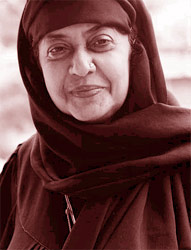
An inadequate but serviceable list
As Compiled By: Preston Merchant
Only the Soul Knows How to Sing: Selections from Kamala Das
Das stopped writing poetry recently after converting to Islam, though she had been called “the first Hindu woman to write honestly about sexual feelings and love.” … continue reading...
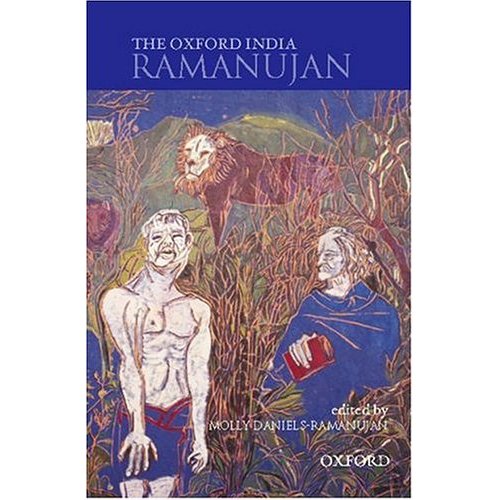
The Oxford India Ramanujan, edited by Molly Daniels-Ramanujan (New Delhi: Oxford University Press, 2004)
As Reviewed By: Preston Merchant
It was a singular moment in the history of Indian letters when A.… continue reading...
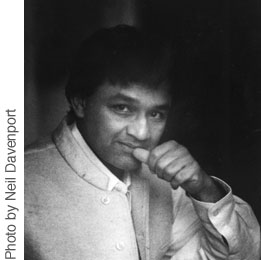
Agha Shahid Ali (1949-2001)
By: Preston Merchant
After Agha Shahid Ali died on December 8, 2001, of brain cancer, Tehelka, an Indian website, presented an online tribute by his friends and admirers.… continue reading...
Here
in the dusty malarial lanes
of Cuttack where years have slowly lost their secrets
they wander
in these lanes nicked by intrigue and rain
and the unseen hands of gods
in front of a garish temple of the simian Hanuman
along river banks splattered with excreta and dung
in the crowded market square among rotting tomatoes
fish-scales and the moist warm odour of bananas and piss
passing by the big-breasted, hard-eyed young whores
who frequent the empty space behind the local cinema
by the Town Hall where corrupt politicians still
go on delivering their pre-election speeches
and on the high road above the town’s burning-ground
from which gluttonous tan smoke floats up
in the breeze, smacking of scorched marrow and doubt.… continue reading...
As Reviewed By: Preston Merchant
It was a singular moment in the history of Indian letters when A.… continue reading...
As Reviewed By: Ravi Shankar
The world’s largest secular democracy has been exporting its letters in English for a few literary generations, but in the wake of a few luminaries-Rabindranath Tagore or more recently, Arundhati Roy-many strident, lyrical voices have gone unrecognized (after all, this wave of Indian poets and novelists, for all the hype, is still but a ripple in publishing in terms of sheer numbers).… continue reading...
As Interviewed By: Rabindra Swain
& Preston Merchant
Jayanta Mahapatra was born in 1928 in Cuttack, in the Indian state of Orissa. Trained as a scientist, he taught college physics for thirty-six years.… continue reading...
As Compiled By: Preston Merchant[private]
Only the Soul Knows How to Sing: Selections from Kamala Das
Das stopped writing poetry recently after converting to Islam, though she had been called “the first Hindu woman to write honestly about sexual feelings and love.”… continue reading...